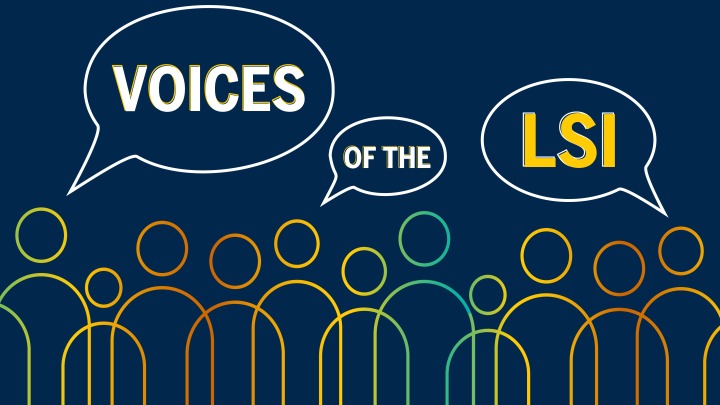
Voices of the LSI: The power of community engagement in the sciences

My first real-life encounter with a scientist occurred in my middle school gymnasium.
As a child, I often watched arts and science programs on our local Public Broadcasting Service channel, and the programming sparked my curiosity about science. But I lacked access to hands-on science experiences until that group of university students clad in lab coats visited my middle school. Conducting live experiments in that gym, they aimed to draw young minds into the captivating world of science. Their demonstrations made a lasting impression on me, fueling my fascination with science. I wanted to understand the chemical reactions and physical phenomena unfolding in front of my eyes. I found myself getting more absorbed in my science classes.
I grew up in a disadvantaged community, where my mother, a single parent, provided the only source of inspiration while raising seven children on a $9.00/hr wage. Given that her income barely met our needs, a college fund wasn't a possibility for me. To assist with family expenses and my own needs, I worked part-time after school, with the firm belief that college was instrumental to my future success.
My growing interest in science eventually prompted my decision to take part in pipeline programs, such as the Earthwatch Institute/Durfee Foundation Student Challenge Award and the Tennessee Aquatic Project and Development Group, Inc. These programs empowered students with essential tools to become future decision-makers and provided much-needed exposure for overcoming obstacles and gaining access to previously unavailable opportunities.
Through these programs, I engaged with the scientific community, fostering my research interests and establishing a valuable personal and professional network. Above all, they inspired me to envision myself as a scientist. The value derived from these experiences motivated me to use my expertise, community-focused viewpoint, and communication skills to create similar life-changing opportunities for future scientists.
DEI is more than just a program; it's a transformative process that requires careful management. It is a collective responsibility in which everyone plays a part.
After earning a bachelor of science in marine biology at Alabama State University, I studied plant-animal interactions in coastal waters at the Dauphin Island Sea Lab (DISL). I then joined Roger Cone’s lab at Vanderbilt University, where I became the lab manager while also acquiring a master’s degree in laboratory investigation from Vanderbilt University. Leading a diverse laboratory team — first at Vanderbilt and then at the U-M Life Sciences Institute, after the lab relocated here in 2016 — helped me fine-tune my budgetary and administrative skills and has taught me the value of fostering a working culture that appreciates each member's unique perspectives.
These diverse perspectives are a source of strength for me. I use them as tools to confront challenges and pursue my goals — and, along with my desire to open more doors for aspiring scientists, they helped drive my motivation to take the next step in my professional journey as the LSI’s first director of outreach and community engagement.
I am driven to this position by my dedication to fostering an environment focused on achievement while promoting diversity among future scientific leaders.
My journey as a scientist started with community engagement efforts — college-level scientists visiting my school, pipeline programs — and this position presents an opportunity to spark that engagement for more aspiring scientists and contribute to the institute and the larger scientific community in a meaningful way. My goal is to advance diversity in our community, embracing all dimensions of difference. This includes race and ethnicity, gender and gender identity, sexual orientation, socioeconomic status, language, culture, national origin, religious commitments, age, (dis)ability status and political perspective.
We aim to foster an open climate at the LSI, with respect and appreciation for all shared ideas. The lab environment's unique ability to attract individuals from all corners of the globe is incredibly valuable. For our unit to function effectively, it is crucial to ensure that diverse voices contribute to high-level decision-making and promote a success-oriented culture for all community members.
In the coming months, we will launch our new DEI (diversity, equity and inclusion) strategic team, which will bring to the table diverse voices from across all classifications within our community to offer a wide array of perspectives and ideas to implement our DEI 2.0 strategic plan. We will also leverage findings from our recent climate survey to drive continuous improvements in our people, processes and products, ensuring alignment with our strategic plan. This will promote a positive work environment where all members feel valued and heard.
DEI is more than just a program; it's a transformative process that requires careful management. It is a collective responsibility in which everyone plays a part. It has tangible, meaningful impacts, and I look forward to further engaging with our community around this work.


